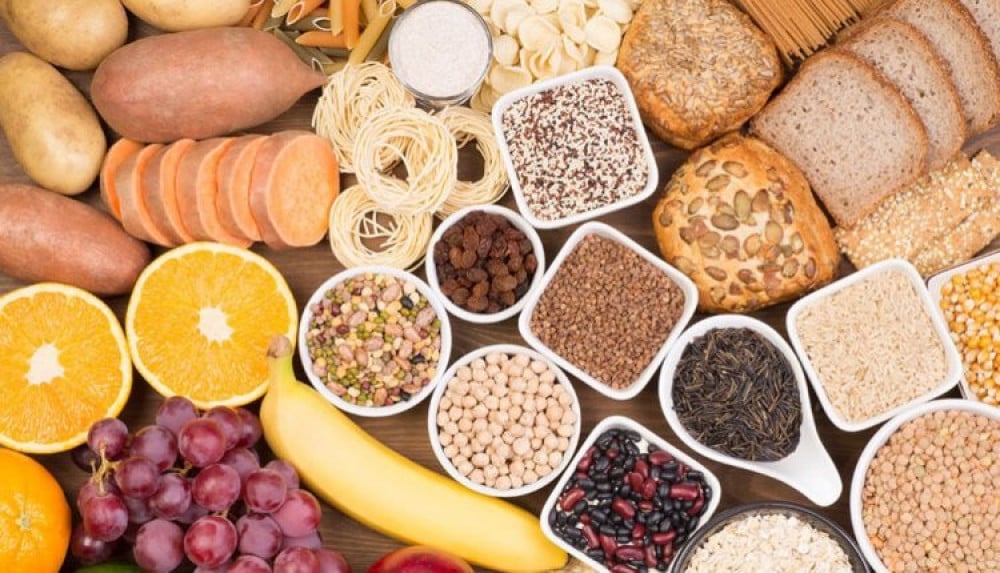Carbohydrates, whether simple or complex, are nutrients necessary for the body to carry out its various functions (carbohydrates are an essential source of energy). And the differences between simple and complex carbohydrates, with regard to their speed of absorption and whether they are beneficial or harmful to the body and its health, so what are healthy carbohydrates? Where are you located? And how do you build a healthy diet based on carbohydrates?
All of this you will find a clear answer to in the following article, and when you finish reading the article, you will be able to choose a healthy diet that guarantees you a healthy body and an ideal weight away from obesity and its accompanying diseases.
What is the meaning of the word carbohydrates?
Carbohydrates, both simple and complex, are chemical compounds found in food. Their composition mainly includes the elements oxygen, carbon, and hydrogen, in proportions that differ from one type to another.
Simple and complex carbohydrates, in turn, are divided into 3 types:
1) Sugar: Sugar is a simple carbohydrate. It is the simplest form of carbohydrate.
2) Starch: It is a complex carbohydrate.
3) Fiber: It is also a complex carbohydrate.
First: complex carbohydrate specifications made them better than simple ones
1- Complex carbohydrates contain longer chains of sugar molecules (a positive thing).
2- Complex carbohydrates contain all natural nutrients such as (fiber and vitamins).
3- Complex carbohydrates are characterized by taking longer to digest and thus giving a feeling of satiety for a longer period than simple carbohydrates.
4- The effect of complex carbohydrates on the blood sugar level is much less than that of simple carbohydrates due to the length of the sugar chain in them.
Where do you get complex carbohydrates from? You can eat ample amounts of complex carbohydrates found in the following foods:
v whole grains.
v quinoa.
v atom.
v banana.
v Brown brown rice.
Second: simple carbohydrates and their differences from complex
1- Simple carbohydrates contain shorter chains of sugar molecules (negative).
2- A large part of the nutrients is removed by what is known as refining.
3- Simple carbohydrates take a shorter time to digest, so you feel hungry quickly after eating them.
4- The effect of simple carbohydrates on the blood sugar level is very fast and instantaneous, and it can cause you a sugar spike.
There are many foods that contain simple carbohydrates, the most famous of which are:
1- White flour.
2- White rice.
3- Processed sweets.
4- Soft drinks.
5- White sugar.
What are the benefits of simple and complex carbohydrates for the body?
Carbohydrates provide many benefits to our bodies, and perhaps the most famous of these benefits is providing the body and cells with energy.
We can summarize the benefits of simple and complex carbohydrates as follows:
An essential source of energy needed for the functioning of the cells of the body (mainly the brain or red blood cells that cannot obtain energy from other sources).
Excess carbohydrates are converted into fats to be used as an energy source when sugar is not available (such as during starvation and fasting).
The beneficial bacteria in the gut use dietary fiber to produce certain compounds that also provide the body with energy.
Complex and simple carbohydrates help prevent disease.
Fiber is also useful in facilitating the passage of food in the digestive tract and treating constipation.
How do you choose healthy carbohydrates?
When you buy foodstuffs from the shop next to your house, and if you want to have a healthy body weight that is healthy from diseases.
Read labels on food packages and choose those that include the following tips and ingredients:
v More than eating fruits and vegetables rich in fiber.
v Reduce the consumption of juices containing added sugar.
v Whole grains are better than refined grains.
v Choose foods that contain complex carbohydrates and reduce those that contain simple carbohydrates (we mentioned these foods earlier in the article).
v Avoid as much as possible eating added sugars.
v Eat low-fat dairy products and milk products without added sugar.
v Make sure to increase the proportion of legumes (lentils, beans and peas) in your diet, as they contain an abundance of nutrients with a small percentage of fat and sugar.


